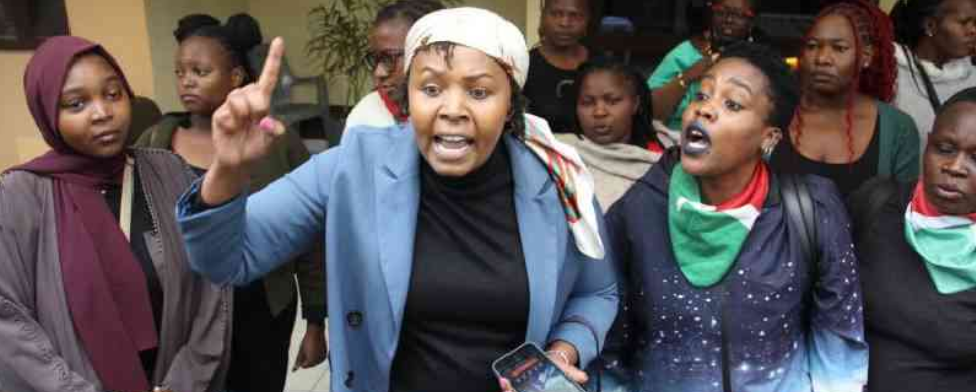COVID-19 is a historic threat that needs us all to contain
- Irungu Houghton

- Mar 21, 2020
- 3 min read

Even before the Finance Ministry gives its preliminary economic assessment on March 23, we know that the shilling has fallen to the lowest level in a decade. Thousands of workers face mass redundancies in the flower, tourism and export processing sectors and 17.8 million students are at home. County Governments are closing or decongesting night-clubs, markets, hospitals and mortuaries to reinforce the national measures being implemented by the National Emergency Response Committee.
Seeing the looming economic impact, the Federation of Kenya Employers and Kenya Association of Manufacturers have made business recommendations for a fiscal stimulus package. The Kenya National Commission on Human Rights, Kenya Human Rights Commission and Amnesty International and others have made practical proposals how to balance our right to health and the other freedoms in our Bill of Rights in the event of a total lockdown.
With eighty countries in lockdown and China reaching the point of zero new infections, it was predictable that rumours of a total and complete lockdown along the lines of China would emerge. It is often overlooked that China actively suppressed information and made crucial policy missteps for eight weeks before their lockdown or that Italian movement restrictions led to mass panic.
The regular briefings by National Emergency Response Committee reveal an open, measured, coordinated and responsible leadership so far. Thursday’s Cabinet decision not to completely lock down the country without a clear strategy for ensuring food and water supplies and security for people living in poverty was wise.
South Korea recorded rapid successes by mass testing, opening sample collection centres, places of worship and learning going online, regular open briefings and public education. Centralising leadership, mass tracing and testing, mandatory hospitalisation, regular communications and not locking down the country based on fear has allowed Singapore to also flatten the COVID-19 curve.
An abrupt lockdown will undermine livelihoods and close down chains of production and food markets. This will potentially lead to predictable mass panic and civil strife. The Government should urgently consider a range of revenue release measures including renegotiating debt repayments to China and the European Union. The US$ 60 million World Bank grant must go beyond public health programming to targeted cash transfers, zero-rating or short-term waivers for water and electricity especially for urban informal settlements. Strategies are also needed to cushion against mass redundancies and reduced incomes for those in the informal sector.
The public must also step up and act on the very simple measures needed to contain the virus. What if employers gave each of their domestic workers a financial contribution to help them stock up on food and medicine? Perhaps we too can bang our sufurias at 9pm every day to honour the courage of everyday health-workers s/heroes. We must stop sharing alarmist messages and share practical verified advice and helpline numbers.
Public anxiety is driven by four fears; infection, going broke, inadequate information and supplies running out. Civic organisations must pre-empt the higher levels of substance abuse, domestic violence and those fights over that last toilet roll.
Residents associations and community-based organisations can design their own versions of quarantining for each village and neighbourhood. Community leaders can work with county public health workers to start keeping records, identifying empty rooms and homes for those in need and organising food and medical deliveries. What if we came up with social distancing strategies, community radio programmes and public water-points that work for urban informal villages now crowded with stay at home young children?
Community organisations and movements like the Kenya Alliance for the Residents Associations, the SHOFCO Urban Network, CrimeSiPoa, the Social Justice Centres, Muungano wa Wanavijiji, Coalition for Grassroots Women Human Rights Defenders must be directly supported at this time to hold the fabric of their communities together. The alternative is to watch the virus spread by an upcountry exodus.
It has taken a pandemic to remind powerful international leaders that no nation can be great if the world is not great. The distance between Cleveland, Ohio and Rongai, Kajiado just isn’t that far. There is also a lesson for all of us. No individual is safe if their community is not. COVID-19 is a historic threat to the world. It needs all of us in an activist movement to respond.
This opinion was also published in the Saturday Standard 21 March 2021




Comments